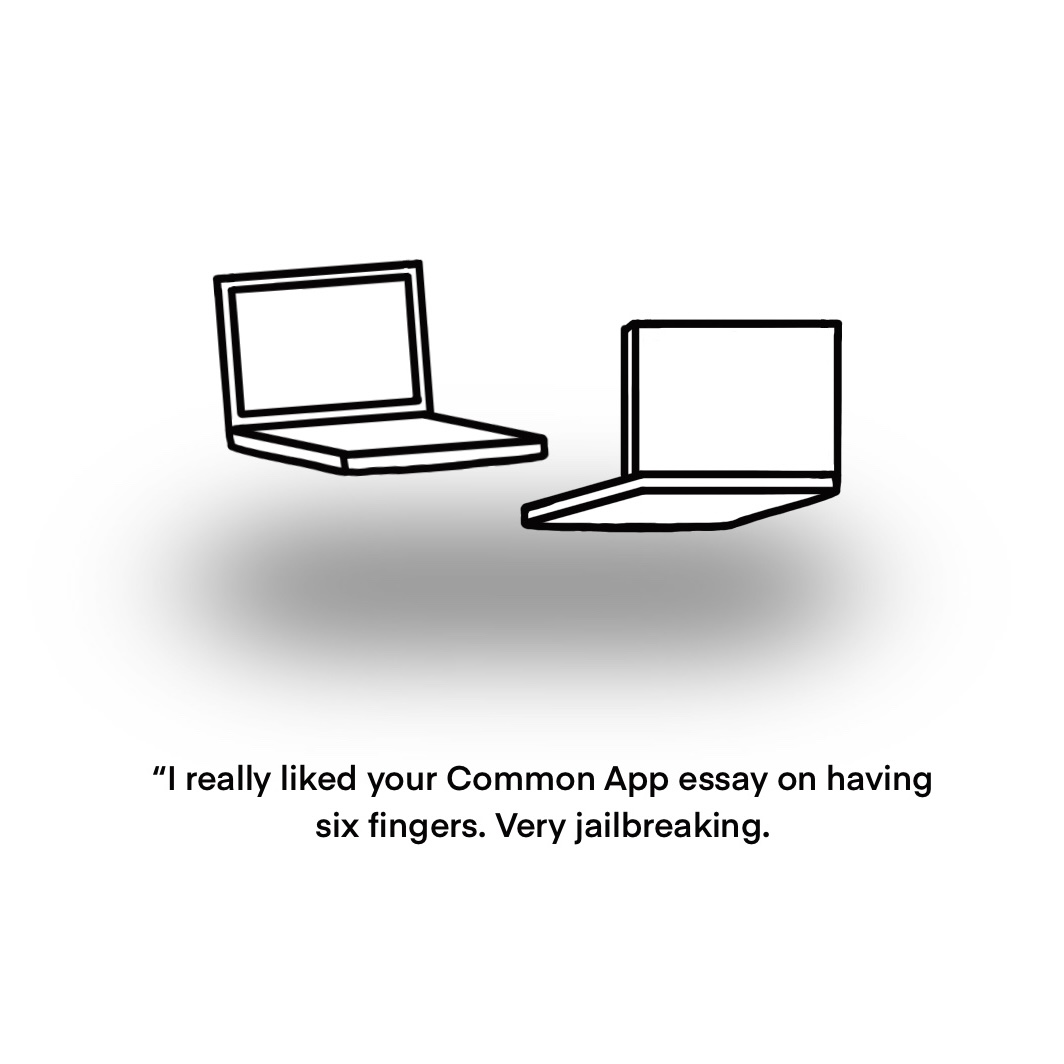Since OpenAI released GPT-1 (Generative Pre-Trained Transformer 1) in 2018, the capability of AI writing assistants has grown massively, alongside inquiries into the ethics of their use. By 2022, OpenAI released ChatGPT, an AI writing assistant capable of a multitude of tasks including writing and interpreting data.
Unsurprisingly, ChatGPT quickly made its way into the education system as a convenient tool for students and educators to quickly evaluate and produce content.
Proponents of AI argue that it is a unique opportunity to reduce error, speed up the writing process and broaden the perspectives of an article since digital writing assistants can pull information from a vast database.
However, AI has its fair share of opponents who argue that its use in writing reduces critical and creative thinking, restricts an author to preexisting ideas and results in a disturbing lack of personalization.
Unsurprisingly, the use of AI writing assistants has seeped into the college admissions process as well, stirring up plenty of controversy. The use of AI has been reported in student’s individual college essays, teacher’s letters of recommendation for their students and the process by which college admissions officers read those two works of writing.
With college deadlines looming in the near future, students and educators are being forced to consider the possible consequences of this new development in technology.
Laura McGinty, a biology teacher, explains that this advancement has created a “a jilted state of trust” between colleges admissions boards and their applicants, leaving each eying the other suspiciously, wondering whether they can trust that they are interacting with another person, not AI.
“I’m trying to not be curmudgeonly and think that it’s going to be the downfall of society,” English teacher Kristina Katrel said. “There must be some value in a new technology.”
According to Katrel, AI could be useful for teachers trying to write letters of recommendation especially given that it is time consuming and unpaid work.
“If it was a math teacher who’s not a word dominant person, it could help them be able to write [a letter of recommendation] in a way that’s more compelling, and get their ideas out,” English teacher Brook Brayman said.
But Robin Dowdy, a social studies teacher, cautions against relying on AI for more than the skeletal structure of a piece of writing. From her personal experience, she has found AI created content to be lacking, citing poor connections between pieces of content, as well as inappropriate tone and syntax.
“The Internet is a garbage dump of racist, homophobic, sexist nastiness that will show its face in hidden places,” McGinty said. AI pulls information from the internet which is subject to the biases of its creators. Over reliance on AI not only leaves an article constrained to preexisting ideas but could even subject it to problematic and unintentionally biased content.
However, it can be hard to find friends, guardians, or teachers with enough spare time to proofread a college essay. In these situations, using AI as a peer editor could be helpful. McGinty recommends employing a balance between an author and AI where the author does the bulk of the work, only allowing AI to have a slight influence.
When it comes to the admissions process itself, interviewees expressed a similar stance, favoring keeping AI usage to a minimum.
“I think at some point you run up against the limits of efficiency, ” Brayman said. “We want that bias. We want to create an incoming freshman class that’s diverse, so we’re biased towards, you know, we need a couple traditional Christian conservative kids from Montana. We need an ultra-liberal kid from Fremont.”
Brayman stated that at the beginning of the admissions process, when colleges are sorting based on test scores and GPA, the use of AI is understandable. It could greatly speed up the process of sifting through that data.
“But at the end, I think individual, or ideally, diverse panels of humans who are well trained in bias resistance and all the mechanisms should be sitting there in a biased way, canceling each other out and finding a good human pool,” Brayman said.
At the end of the day, the college admissions process should be a transaction between people. Katrel believes that little flaws which demonstrate personality are therefore a vital part of this process, saying “I feel sorry for students who think that the computer will do better than them. That’s the saddest part.”




















